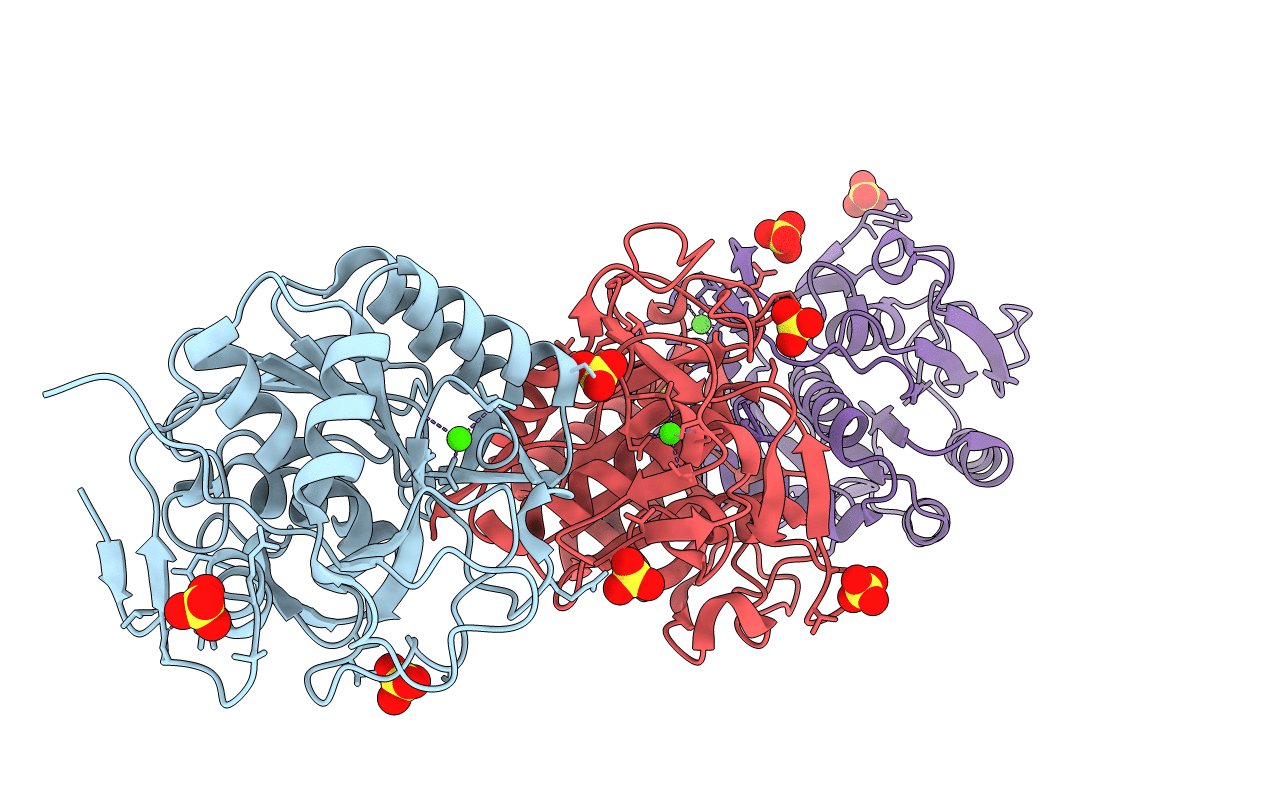
Deposition Date
2016-12-07
Release Date
2017-10-18
Last Version Date
2024-10-23
Entry Detail
PDB ID:
5WSL
Keywords:
Title:
Structural studies of keratinase from Meiothermus taiwanensis WR-220
Biological Source:
Source Organism(s):
Meiothermus taiwanensis WR-220 (Taxon ID: 1339250)
Expression System(s):
Method Details:
Experimental Method:
Resolution:
1.50 Å
R-Value Free:
0.17
R-Value Work:
0.14
R-Value Observed:
0.14
Space Group:
P 1 21 1


